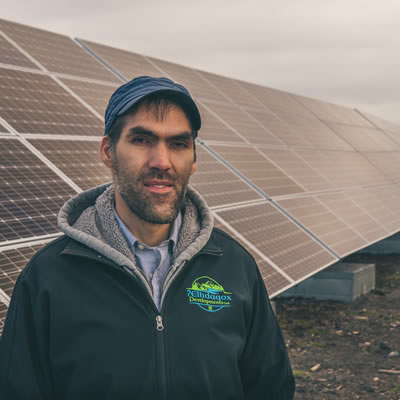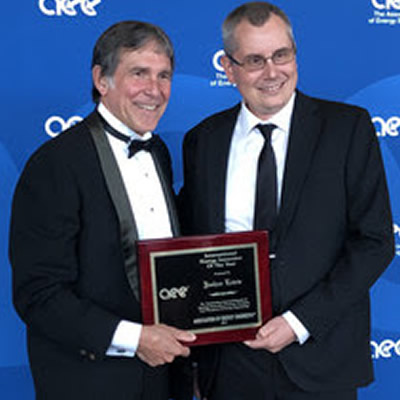Op-Ed: Beware the false profits of ‘green energy’ peddlers

Kris Sims, Canadian Taxpayers Federation, BC Director — Photo courtesy Kris Sims/CTF
Let’s be as clear as a mountain stream: B.C. will need hydro-electric power in the future — and lots of it.
Amid the flood of questions surrounding the Site C dam mega project, we are hearing claims from some corners that we won’t need all that electric power coming from the Peace River’s future turbines because “green energy” like wind and solar will fill the gap. Fellow Canadians have seen this morality play before, and they are living in crushing energy poverty as a result.
Ontario turned away from some of its traditional forms of electricity generation and embraced the promise of wind and solar in 2009. The government signed shockingly expensive deals with private green energy providers, with some contracts spanning 30 years. Power bills have more than doubled for most households — worse in some rural areas — and businesses have fled that province.
Much of the increased cost in Ontario is caused by the imposed global adjustment fee. That fee is the difference been the real market price of electricity and the bloated contracted price promised by the government to some of the holders of these wind and solar contracts. For example: the real market price for power in Ontario on Friday, Oct. 20 at peak suppertime was seven cents per kilowatt hour. Some of the solar deals were signed for 80 cents per kilowatt hour. That 73-cent “adjustment” is the fee imposed on Ontarians. In 2015, Ontario Auditor-General Bonnie Lysyk calculated that Ontarians had been overcharged $37 billion more than necessary on their power bills and that they will be fleeced for an additional $133 billion by 2032 because of global adjustment fees.
The province even turns off the hydro turbines at Niagara Falls when it’s windy or sunny so the expensive new technologies get priority placement on the grid ahead of cheap hydro power that has been running nonstop for nearly a century. To add insult to injury, Ontario produces a surplus of power and sells it to neighbouring New York State at the market rate with no global adjustment fees.
The stories told during town hall meetings and talk shows are terrible. Record numbers of people are turning to food banks, some are walling off parts of their homes to stay warm in winter, and others are turning back to oil lamps for light. Prime Minister Justin Trudeau heard the pain firsthand during a televised forum in Peterborough, when a rural woman tearfully pleaded with him to do something about her $1,200-per-month bill.
While British Columbians must be vigilant about cost overruns during the construction of the Site C dam, we also need to learn lessons from Ontario. We need to be able to power our homes, our businesses and our future fleets of promised electric cars with affordable electricity for generations to come. Hydro power might not be perfect, but it runs 24/7, all year round, during sun, cloud and snow. It’s a reliable source of power that we are experienced with in B.C., and the bill won’t send families to the food bank.
This article was previously published in the Vancouver Province




